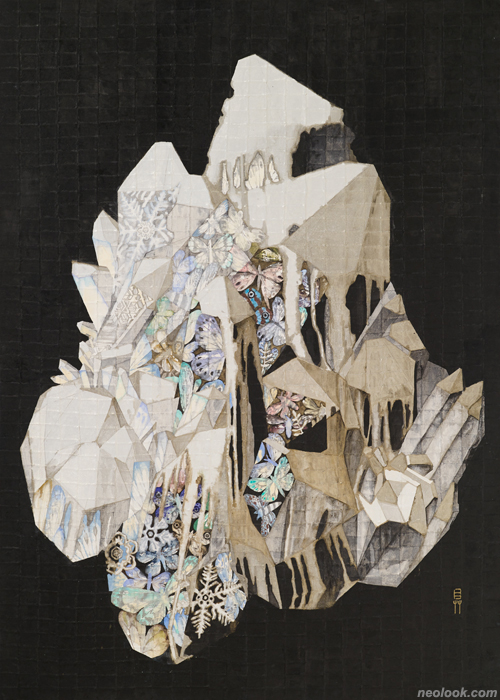- ● homepage
- ● archives
- ● restoration
- ● books
- ● big banners
- ● post board
- ■ neo's search
- ■ about us
- ■ 게재방법 안내
- 개인정보처리방침

- [email protected]
- Tel. 02_335_7922
- Fax. 02_335_7929
- 10:00am~04:30pm
- 월요일~금요일
- 3/3(월) 대체공휴일

Wreck Scenery 遺韻風景
구본아展 / KOOBONA / 具本妸 / painting 2019_0921 ▶ 2019_1102 / 일요일 휴관
● 위 이미지를 클릭하면 네오룩 아카이브 Vol.20160703f | 구본아展으로 갑니다.
작가와의 대화 / 2019_0921_토요일_04:00pm
Speaker Sun Yi-Hua(Artist, Professor of Department of Fine Arts, National Taiwan Normal University) KOO Bon-A(Artist, Ph. D of Department of Fine Arts, Hongik University, Korea) Chinese-Korean translation
후원 / 인천광역시_인천문화재단_한국문화예술위원회
관람시간 / 11:00am~07:00pm / 일요일 휴관
Dynasty Gallery No. 43, Leli Road, Da-An District, Taipei, Taiwan Tel. +886.2.23770838 www.dynastyart.com
Dialogue with 'Wreck' (遺韻風景) ● The paintings are present various physical objects which exist before our eyes and images related thereto; however, those come down to the matter of human's sense and perception, and, furthermore, each individual's view. My works have focused on arranging the chaotic and disordered factors of landscape scenes in a harmonious way so that I can create a self-controlled unity, for which the dialogue with wreck objects is essential. The external world means the internal one and vice versa. 'Dialogue with wreck' is based on the space-time world inside which numerous choices and activities are being made between external and internal world; in other words, it is the process of expressing inner feelings in visual ways. Communicationwith the speechless objects, while listening to the speechless objects and perceiving them through paintings, enables us to be free from a stereotyped image and an obsessed notion. Only a sincere and pure dialogue with them makes it possible.
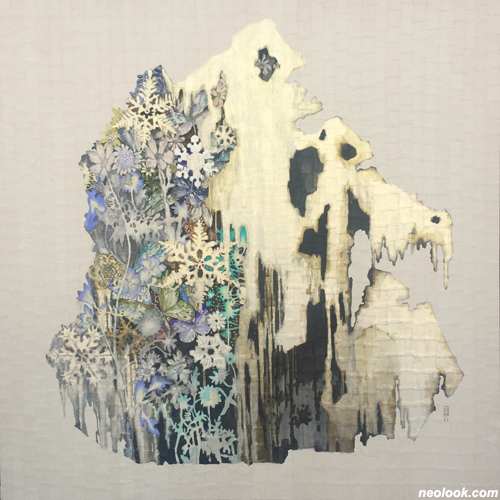
- 구본아_Teeth of Time_한지 콜라주에 먹, 채색, 금·은분_112×112cm_2019
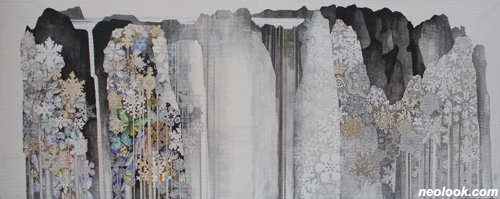
- 구본아_Teeth of Time_한지 콜라주에 먹, 채색, 금·은분_132×160×5cm_2019

- 구본아_Teeth of Time_한지 콜라주에 먹, 채색, 금·은분_140×100cm_2019
Fallen walls, debris from buildings, etc. with some damages and stains caused by normal wear and tear, rain, wind, etc., which are far from new shiny buildings, depict the elapse of time. Remaining stones, fallen walls, dried plants, etc. have suggested some knotty problems; however, these become somewhat bygone issue. The time gap between the past and the present replaces the perception of 'reality' and 'functional features of buildings' with the perception of 'beautiful objects' in a calm and careful way. This is an attempt to compromise on the long-lasting conflicting issue of 'civilization'. Even the concrete wall, one of the products that human creates, may be recognized as the product of nature in the end. The image of dried plants also reminds us of uniquenostalgic memories. This means the removal of tension between human and life and human and city space. In this context, antique ruined buildings can become a part of nature.
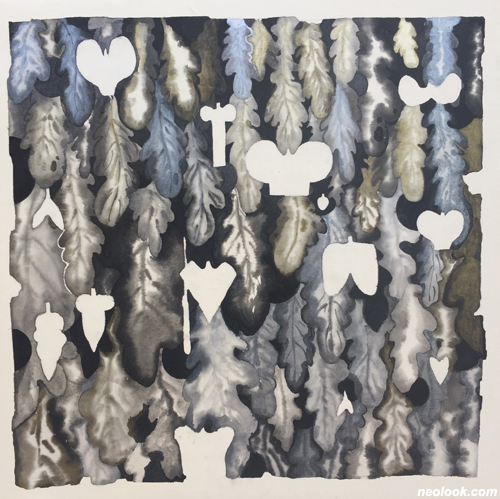
- 구본아_Wreck scenery3_한지에 먹, 채색, 금·은분_50×50cm_2019
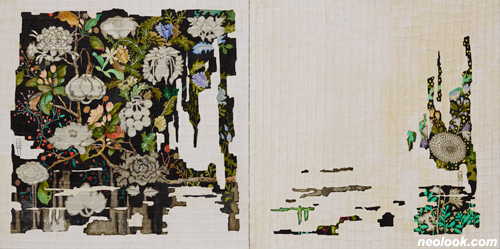
- 구본아_Wreck scenery1_한지 콜라주에 먹, 채색, 금·은분_60×60cm_2019
Stones, walls, etc. used for my works play an important role in enriching my experiences through i) numerous marks and forms thereon and ii) the interaction with time and space passing around them, not to the mention the formative features of those stones and walls. Stones are not dead any more. They are alive and they lead us to the direct intuition on one's entities, as is the case of the religious medication facing the wall. In other words, the physical objects such as stones and walls provide an organic unlimited space where the empathy between those objects and me is developed. I've tried to make some efforts to express both simple and complex words that they have said to me through my paintings.
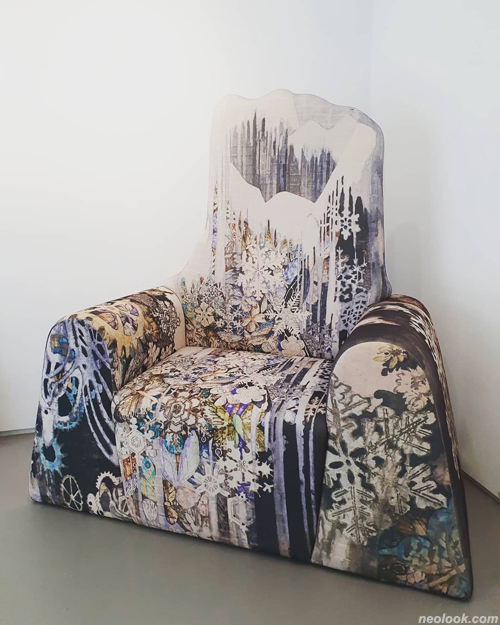
- 구본아_Teeth of Time_아트 소파_2019
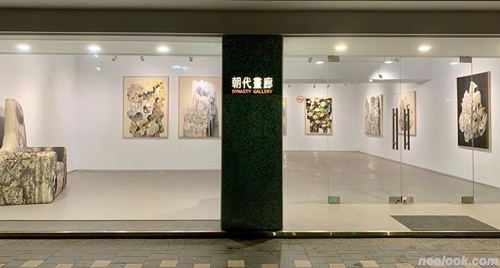
- 구본아_Wreck scenery展_Dynasty gallery_2019
My works have focused on expressing the source and cycle of eternal life; hopefully any and all cyclic objects will remain semitransparent or unknown to me and other spectators. ■ KOO Bon-A
* This exhibition is selected as a regional cooperative project by Art Council Korea & Incheon Metropolitan City & Incheon Foundation for Arts & Culture
Vol.20190921i | 구본아展 / KOOBONA / 具本妸 / painting

